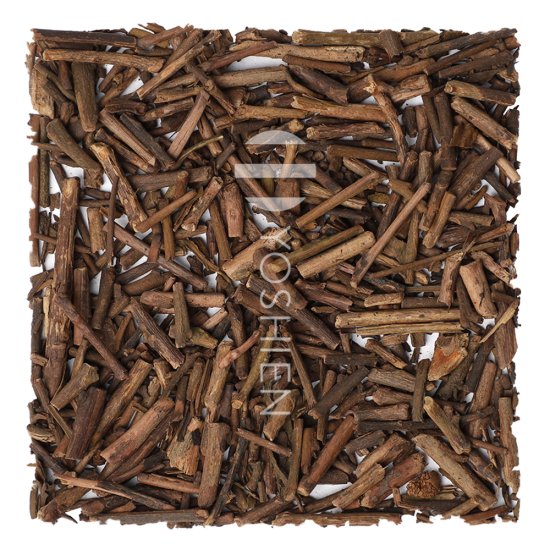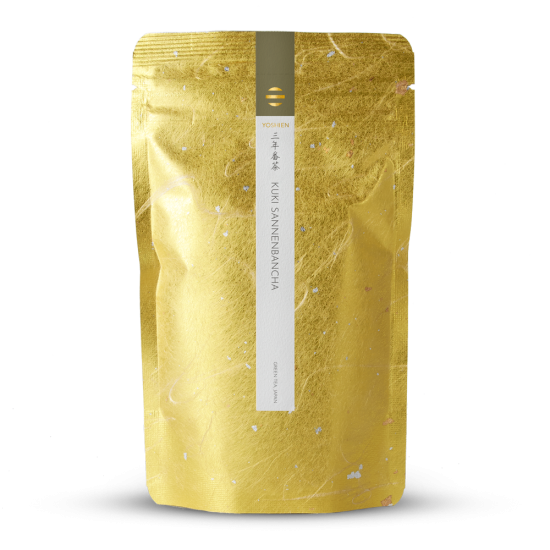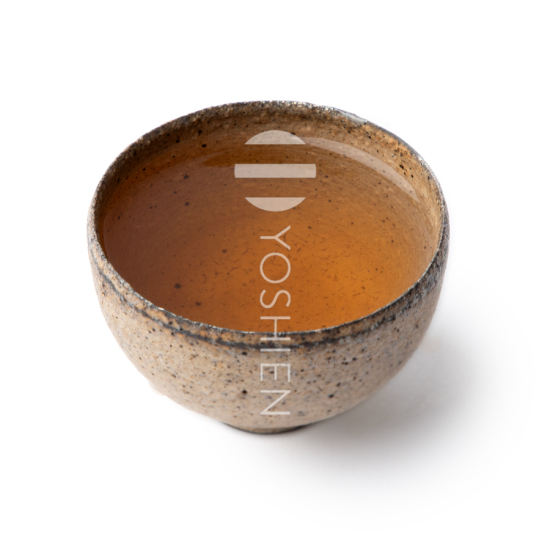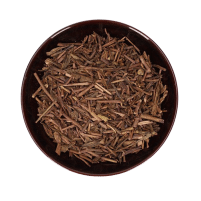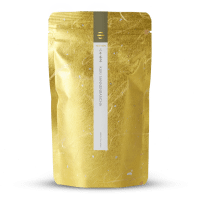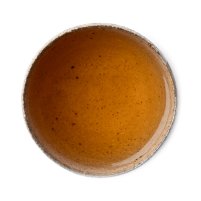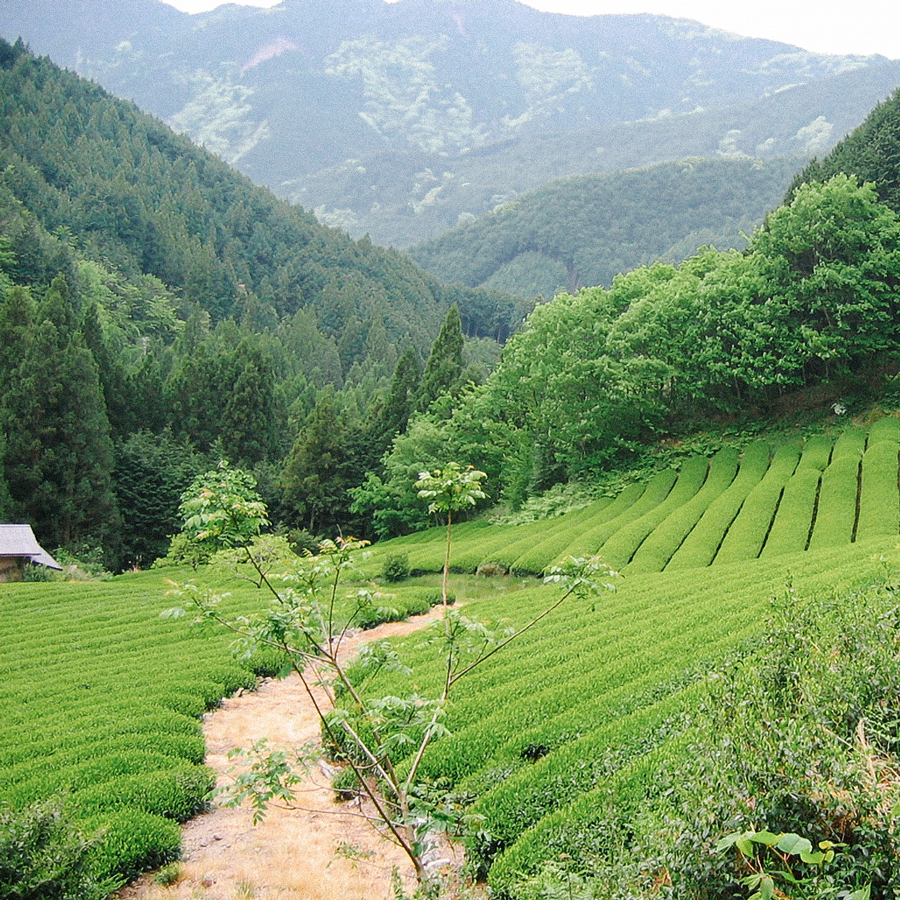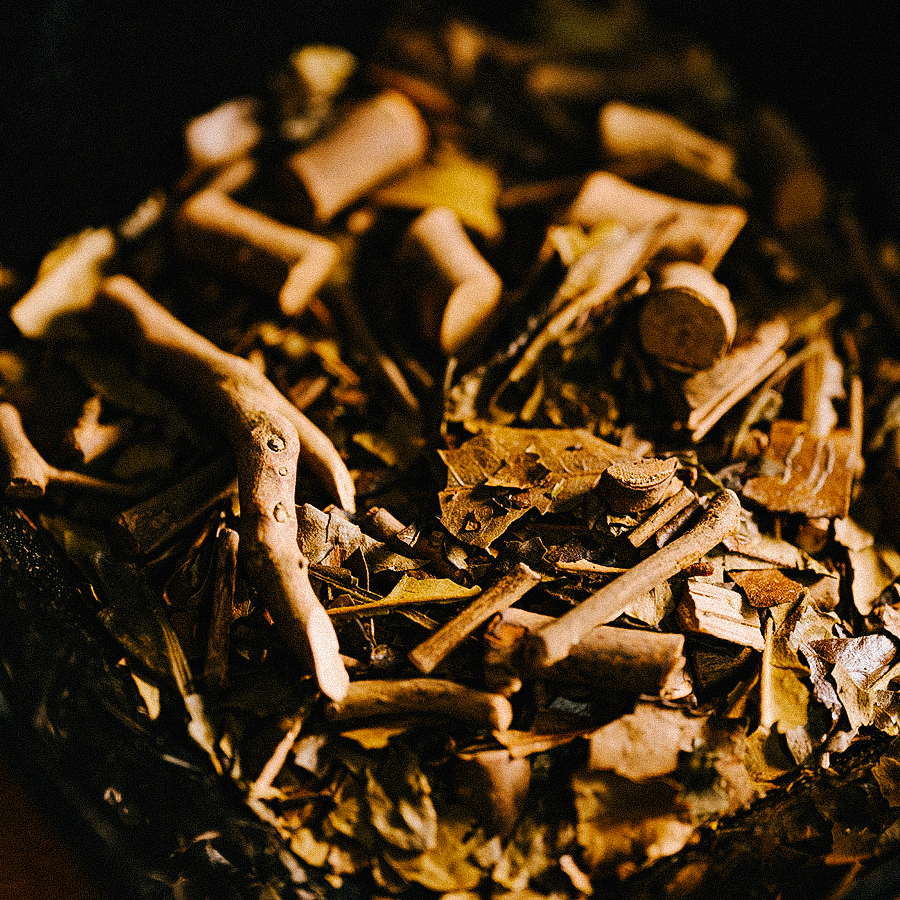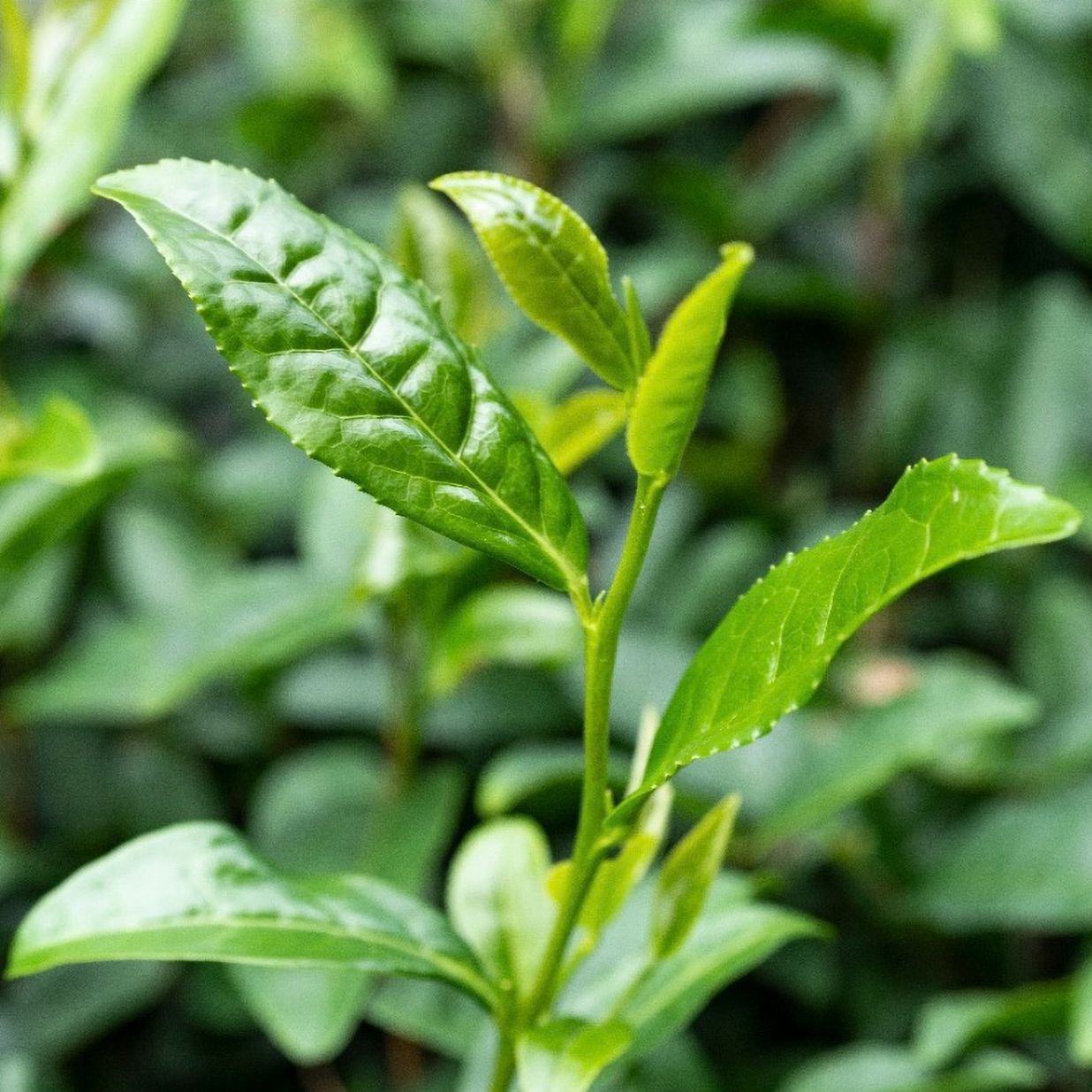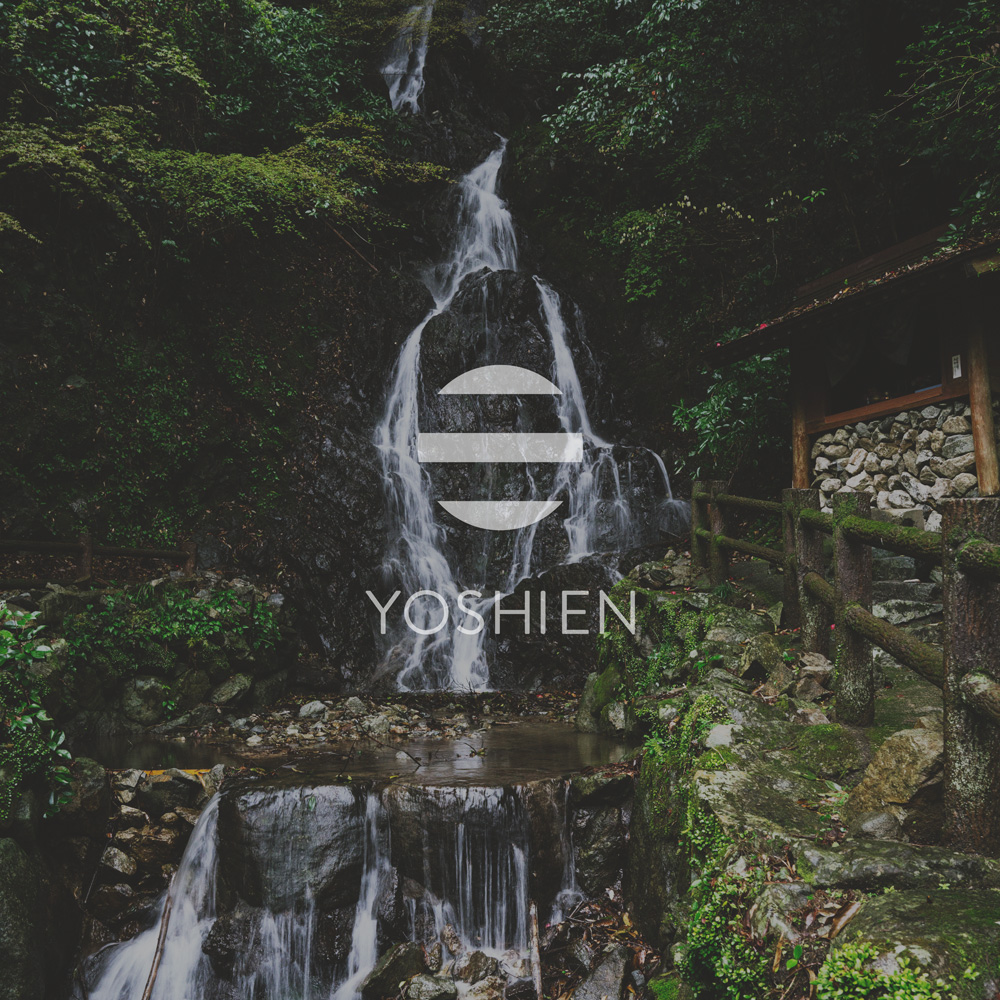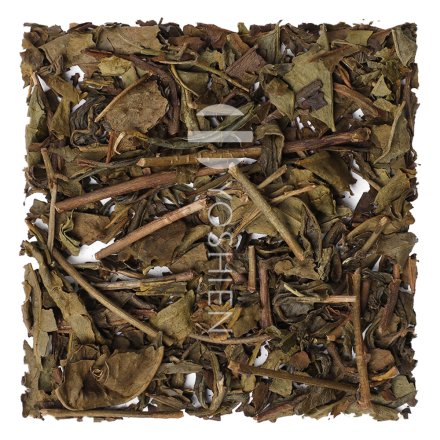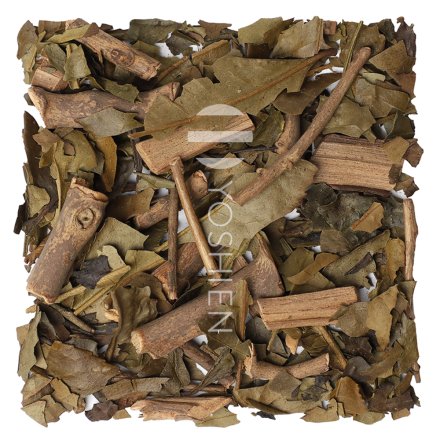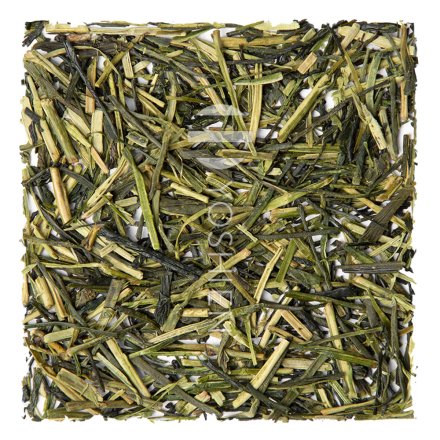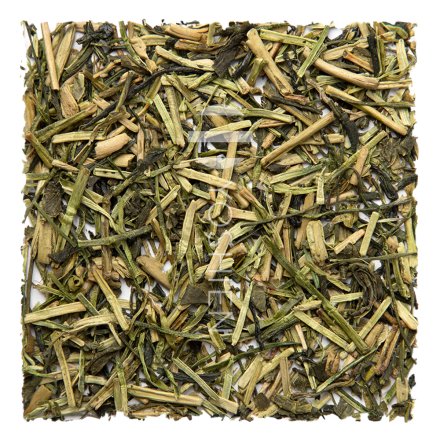Despite high demand, the tea farmer only uses the lower stems from the October harvest and allows the tea to age for a full 3 years (sannen). This tea is thus an authentic, fully aged (jukusei 熟成) sannenbancha. This variety of green tea is only produced in small quantities in Japan and is considered a rarity. Pure kuki sannenbancha are especially difficult to come by.
A few sannenbancha producers in Japan reduce the maturation period and mix in the produce of earlier harvests to increase the yield, but at the expense of the tea's taste. Exclusively using 3-year-aged stems and production in small batches ensure an even roasting and optimal retention of flavour. This processing method also guarantees uniform macrobiotic properties.
Single Origin
This tea is predominantly sourced from the above mentioned tea farm in Fujieda, Shizuoka; however, small amounts of tea from other local tea farms in Shizuoka are blended in to increase the yield. Sourced directly from the tea farmer.




